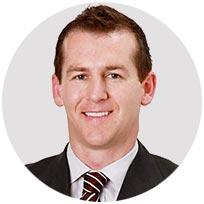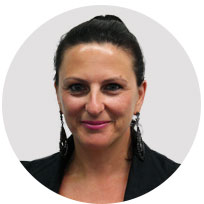Psychologists Online across Australia for counselling, testing and groups - Melbourne, Sydney, Brisbane, Adelaide, Hobart, Perth and Canberra
What is an eating disorder?
An eating disorder involves an abnormal relationship with food — either eating less or over-eating — which can be influenced by food addiction and food behaviour often leading to negative effects on one’s physical or mental health. The most common eating disorders are:
Anorexia nervosa
Anorexia nervosa is most commonly recognised by fast and unhealthy weight loss. It is characterised by
- Restriction of eating, to levels that lead to significantly low body weight
- Intense fear of gaining weight
- Warped or inaccurate sense of bodyweight and shape
There are two subtypes of anorexia nervosa: restricting type, where weight loss is attributed to dieting, fasting and/or excessive exercise. And binge-eating/purging type, which involves recurrent self-induced vomiting, or misuse of laxatives, diuretics, or enemas.
Anorexia nervosa is far more common clinically in females than males, and usually begins during adolescence or young adulthood. Many people with anorexia nervosa report also experiencing an anxiety disorder and other disorders such as bipolar, depression or OCD.
Bulimia nervosa
Where a sufferer of anorexia will dramatically cut their calorie intake to the point of starvation, bulimia usually involves a cycle of binge-eating and recurrent compensatory behaviour to prevent weight gain, such as self-induced vomiting, or the misuse of laxatives or diuretics.
Bulimia is often associated with obesity and concerns about body weight.
Bing-eating disorder
Binge-eating disorder features episodes of binge-eating, similar to bulimia, in a specific timeframe, much more than what is normal or healthy and a sense of lack of control, often when one is not hungry or is uncomfortably full. This is often followed by a sense of disgust, embarrassment or guilt afterward.
However, unlike bulimia, binge-eating disorder is not associated with any extreme compensatory behaviour such as vomiting, fasting or extreme exercise.
Bing-eating disorder has associated health risks, including increased risk for weight gain and development of obesity.
What are some of the signs?
You or someone close to you may have an eating disorder if they:
- Eat very little or far too much, including at meal times and throughout the day and night
- Express dissatisfaction with their weight or body shape
- Self-induce vomiting after meals
- Abuse of laxatives or diet pills
- Compulsively move between their scales and the jogging track or gym
- Are obsessive or secretive about unhealthy eating habits, both under-eating or binge-eating
Causes of an eating disorder
There are many factors that combine to cause an eating disorder. These include:
- Social factors: Having negative role models in their direct environment and in the media can cause people to be irrationally dissatisfied with their bodies and lead to internalisation of body weight ideals.
- Biological factors: Some people are genetically predisposed to developing an eating disorder, this can be related to family history and childhood factors such as pubertal maturation, for example maturing earlier than their peers.
- Personality factors: People with eating disorders often have low self-esteem, can be highly sensitive and perfectionists
- Environmental factors: Eating disorders can occur during a stressful time of life, such as pregnancy, puberty, relationship difficulties, loss or trauma.
Strategies to manage or prevent eating disorders
Creating positive role models for oneself and others with regard to body shape, weight and food behaviour while addressing food addiction and incorporating guidance from food psychologists, can be pivotal in preventing an eating disorder in young people. You can also take action to minimise stress and depression, which can sometimes result in compensatory eating. Identify any possible genetic risk factors for eating disorders and other related illnesses such as depression and obsessive compulsive disorder. Learn about healthy eating behaviours and try to develop positive habits and thoughts around food and exercise.
When to seek professional assistance
Especially in the case of anorexia nervosa, where the person may be dangerously underweight or malnourished, professional help is very important. Anorexia can cause long-term damage to bones and overall growth and can even lead to premature death, having the highest mortality rate of all mental disorders. If someone close to you has the signs of an eating disorder, speak to them and encourage them strongly to seek help.
How Psychology Melbourne can help
Psychology Melbourne has a number of psychologists with expertise in the field of eating disorders, and treatments such as cognitive behavioural therapy (CBT), family therapy and interpersonal psychotherapy (IPT) are all established methods of treatment for anorexia, binge eating disorder and bulimia.
By creating a safe and trusting environment, our experienced psychologists can help acknowledge and change disruptive or dysfunctional thought patterns and behaviour, and promoting healthier relationships with eating.
Please note: You may be eligible for additional Medicare rebates under an Eating Disorder Plan (EDP). This plan entitles you to up to 40 sessions per year. Visit your GP to discuss your treatment options.
Our Eating Disorders Counselling Team

MORE INFO
Dr Ross Leembruggen
online only

MORE INFO
Dr Anna Mooney
Melbourne CBD

MORE INFO
Dr Giovanna Lajbcygier
Melbourne CBD

MORE INFO
Stephen Rendall
Melbourne CBD
Group Therapy
Group therapy is an alternative effective treatment for eating disorders and significantly reduces the cost of individual sessions. It gives you valuable access to experienced psychologists at a reduced cost compared to individual sessions.
Our Eating Disorders Group can be very rewarding and helps you understand the origin of eating disorders including the types, signs, symptoms and common causes.
People often feel alone and the only ones struggling with eating disorders. It can be a huge relief to hear others discuss what you are going through. Regularly talking and listening to others also helps you feel heard and understood and puts your own problems in perspective.
Groups provide a safe place to practice new behavioural strategies and gain extra support from fellow participants. Seeing other people tackle problems and make positive changes, can help you face your own concerns outside the therapy room.
You can join a group on completion of one-on-one counselling or as a stand-alone treatment. The eating disorder group can be held online or face-to-face.
You can register your interest below -
Register your Interest in Group Therapy
For more information about our therapy groups or on any of the above, please contact our Reception team on 1300 161 639 or email us at info@psychologymelbourne.com.au or use the chat box on this website.
